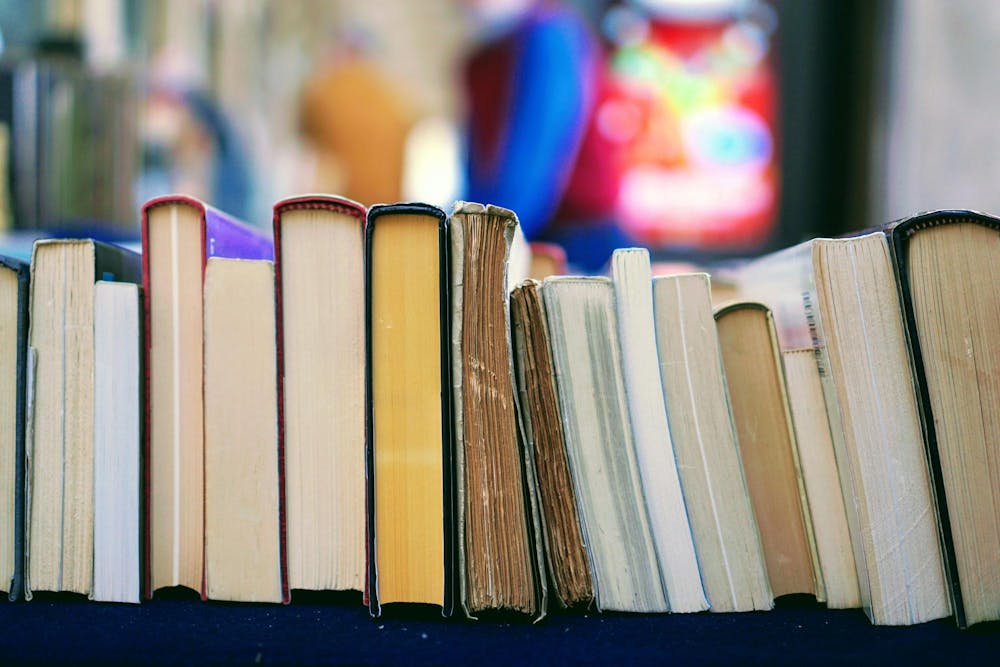We are sadly drawing to a close on my last semester in the Program of Liberal Studies. If you don’t have a PLS friend to lecture you on our major, I’ll explain in brief: students in PLS, or the Great Books Program, read history’s most influential books in a series of 24 reading-intensive seminars. The whole curriculum amounts to around 300 books, meaning we are crazy — and also pretty good at recommending reading material.
I take this opportunity to give my readers some unsolicited book suggestions for free reading, from a senior who has recently read them all. My selections are affected by personal bias — after all, this is an opinion column — but I aim to include something for every type of reader. I will also keep this list limited to books that one can learn from and enjoy without professional guidance. Without further ado, here are eighteen great books I think everyone should read.
For everyone:
- Homer’s Odyssey: The ultimate classic, and inspiration for countless other works, including James Joyce’s Ulysses and Nickelodeon’s The SpongeBob Movie.
- Voltaire, Candide: This delightfully cynical novel only takes two hours to read, but it will have your mind reeling for days.
- Simone de Beauvoir, The Second Sex: A jarring and insightful commentary on the history and science of sexism.
For the historian:
- Leo Tolstoy, War and Peace: This phenomenal novel asks what it means to account for history. It’s a very rewarding read — if you can make it through all 1,200 pages.
- W.E.B. Du Bois, The Souls of Black Folk: Du Bois addresses American history and identity in this essential account of post-slavery America.
- Hannah Arendt, Eichmann in Jerusalem: Arendt’s riveting account of the trial of Adolf Eichmann challenges our conviction that normal people are incapable of great evil.
For the bookworm:
- Herman Melville, Moby Dick: If you think the forty-page chapter on the Whiteness of the Whale is irrelevant, you are not reading this book correctly. This masterpiece addresses philosophy, religion, art and history without leaving the subject of whaling.
- Fyodor Dostoevsky, The Brothers Karamazov: This passionate novel of ideas will definitely make you cry.
- Miguel de Cervantes, Don Quixote: Every PLS major loves this book, and for good reason. This comical hero’s journey is entertaining, thought-provoking and absolutely original.
For the theologian:
- Augustine, Confessions: A Catholic staple.
- Bonaventure, The Life of St. Francis: This astonishing memoir forces us to ask ourselves what it actually means to live like Christ.
- Martin Luther King, Jr., “Letter from Birmingham Jail”: A must-read for any religious or non-religious person.
For the economist:
- Adam Smith, The Wealth of Nations
- Karl Marx, Capital
- Max Weber, The Protestant Ethic and the Spirit of Capitalism
I recommend all three of these books for the same reason. As an economics major, I constantly see students and professors misinterpret and selectively quote from these books without having read them. Before you comment on these authors, please do them the basic courtesy of actually reading their work.
For the philosopher:
- Plato, Apology: An essential starting place for the Western canon. Read this one, then move on to the Republic and the other dialogues.
- Erasmus, Praise of Folly: This is one of my personal favorites — a witty dissertation on all the ways philosophy and religion can go wrong.
- Camus, The Plague: A startling account of suffering and purpose that strangely mirrors the events of the COVID-19 pandemic. Great for readers who are curious about existentialism.
Feel free to criticize this list, as it is in-exhaustive and confined to the Western canon. I hope that you, my reader, can find something here that you learn from. I often hear my STEM and business major friends say that they “could never” read the books in my curriculum, but they underestimate themselves. Casual readers are kept from the classics by a veil of pretense and perceived difficulty, but any decent reader can enjoy these books. If an overconfident 18-year-old can read Aristotle, you can too. When exams are over, grab one of these volumes from the library and happy reading!










